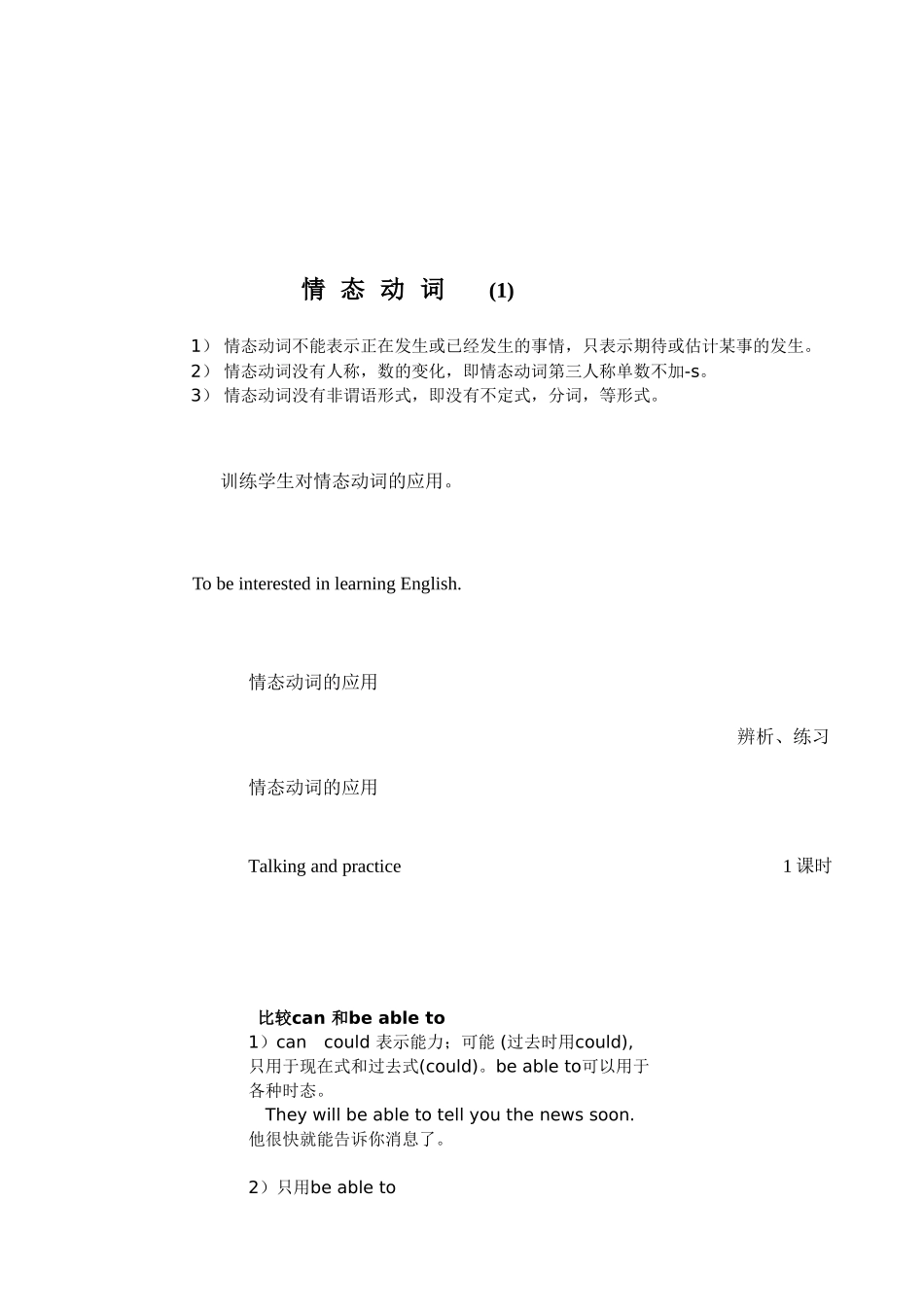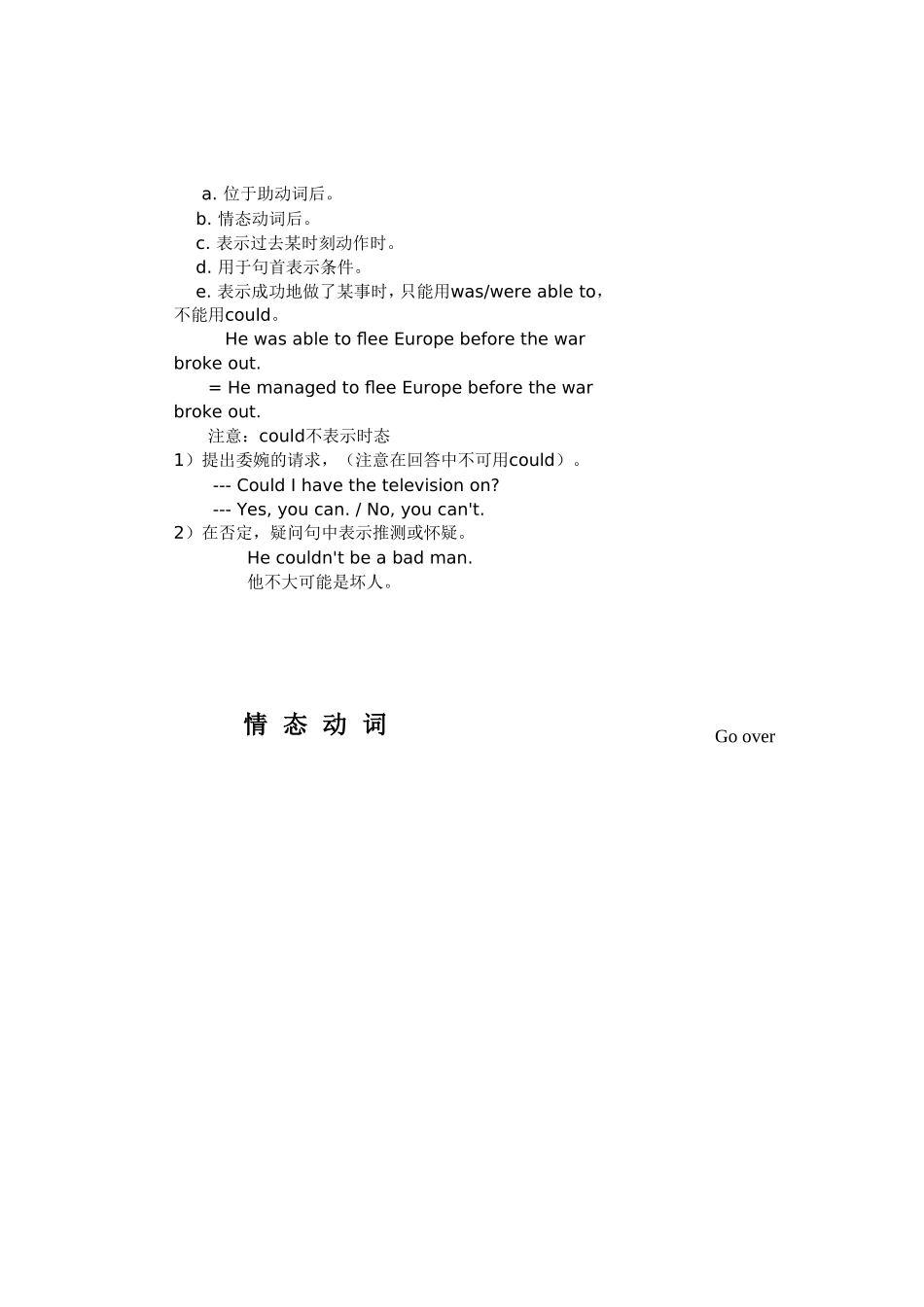情 态 动 词 (1)1) 情态动词不能表示正在发生或已经发生的事情,只表示期待或估计某事的发生。2) 情态动词没有人称,数的变化,即情态动词第三人称单数不加-s。3) 情态动词没有非谓语形式,即没有不定式,分词,等形式。训练学生对情态动词的应用。 To be interested in learning English.情态动词的应用 辨析、练习情态动词的应用Talking and practice1 课时 比较can 和be able to1)can could 表示能力;可能 (过去时用could), 只用于现在式和过去式(could)。be able to可以用于各种时态。 They will be able to tell you the news soon. 他很快就能告诉你消息了。2)只用be able to a. 位于助动词后。 b. 情态动词后。 c. 表示过去某时刻动作时。 d. 用于句首表示条件。 e. 表示成功地做了某事时,只能用was/were able to, 不能用could。 He was able to flee Europe before the war broke out. = He managed to flee Europe before the war broke out. 注意:could不表示时态1)提出委婉的请求,(注意在回答中不可用could)。 --- Could I have the television on? --- Yes, you can. / No, you can't.2)在否定,疑问句中表示推测或怀疑。 He couldn't be a bad man. 他不大可能是坏人。情 态 动 词 Go over


